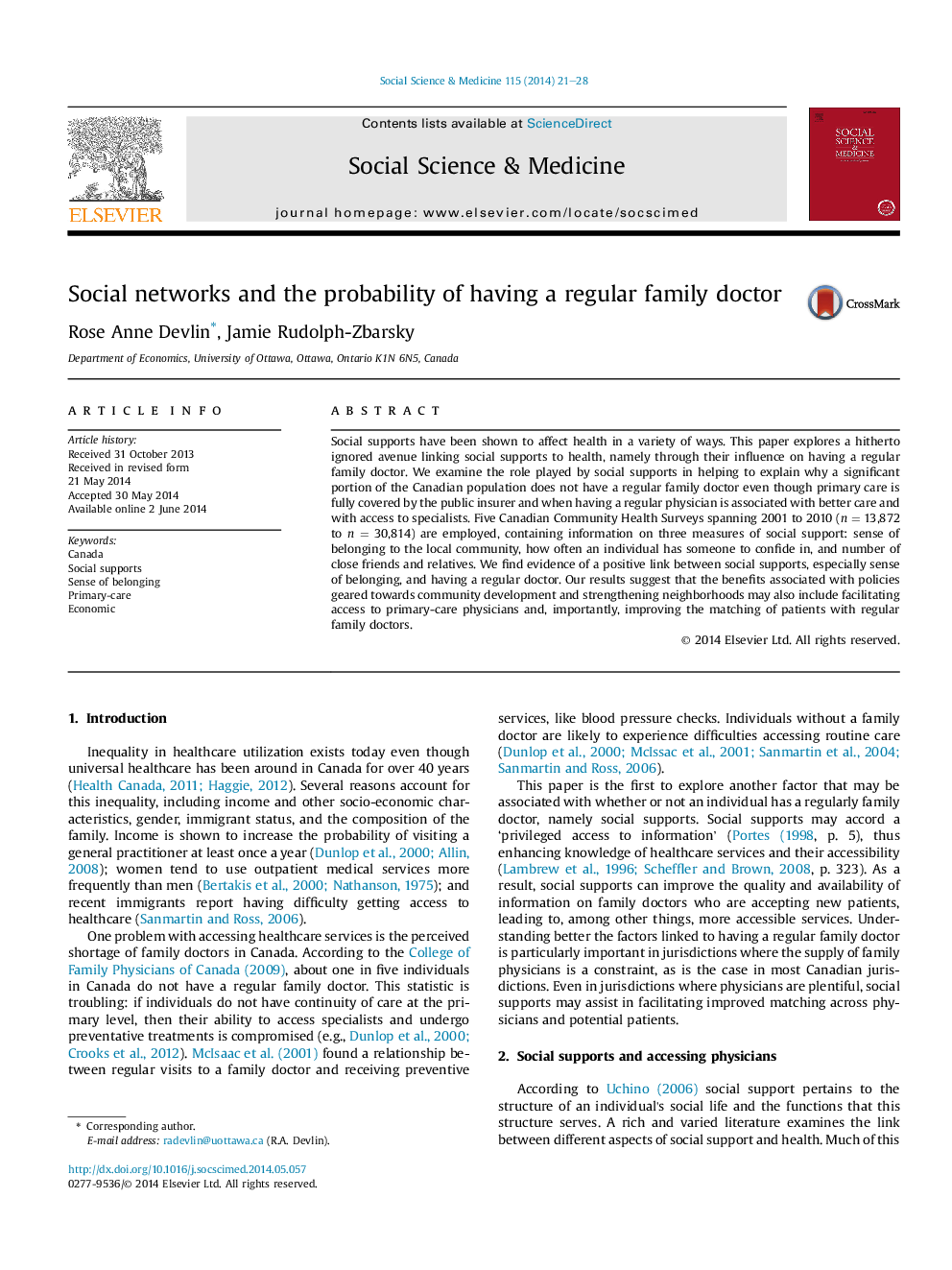| کد مقاله | کد نشریه | سال انتشار | مقاله انگلیسی | نسخه تمام متن |
|---|---|---|---|---|
| 952266 | 1476053 | 2014 | 8 صفحه PDF | دانلود رایگان |
• The first paper to examine empirical how social supports are linked to the probability of having a regular family physician.
• Sense of belonging is strongly associated with the likelihood that individuals have a regular family physician.
• Several socio-demographic factors influence the likelihood of having a regular doctor.
• Even in a publicly funded system, high-income individuals have privileged access to regular family doctors.
• Policies that improve community cohesiveness may also improve information flows and access to regular physician.
Social supports have been shown to affect health in a variety of ways. This paper explores a hitherto ignored avenue linking social supports to health, namely through their influence on having a regular family doctor. We examine the role played by social supports in helping to explain why a significant portion of the Canadian population does not have a regular family doctor even though primary care is fully covered by the public insurer and when having a regular physician is associated with better care and with access to specialists. Five Canadian Community Health Surveys spanning 2001 to 2010 (n = 13,872 to n = 30,814) are employed, containing information on three measures of social support: sense of belonging to the local community, how often an individual has someone to confide in, and number of close friends and relatives. We find evidence of a positive link between social supports, especially sense of belonging, and having a regular doctor. Our results suggest that the benefits associated with policies geared towards community development and strengthening neighborhoods may also include facilitating access to primary-care physicians and, importantly, improving the matching of patients with regular family doctors.
Journal: Social Science & Medicine - Volume 115, August 2014, Pages 21–28
